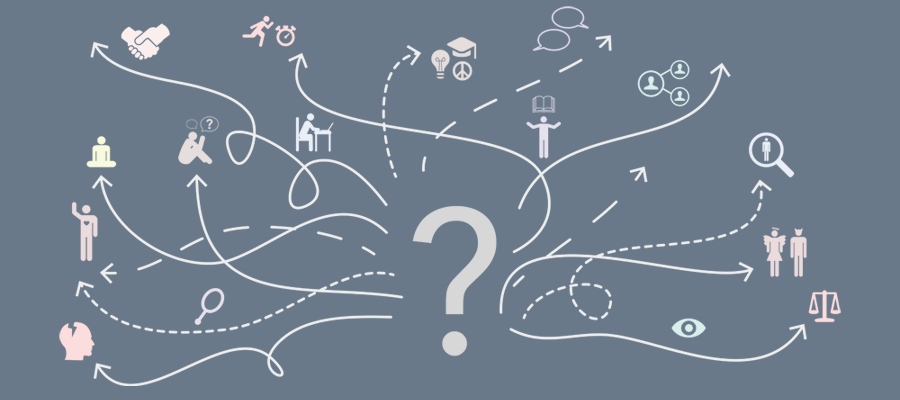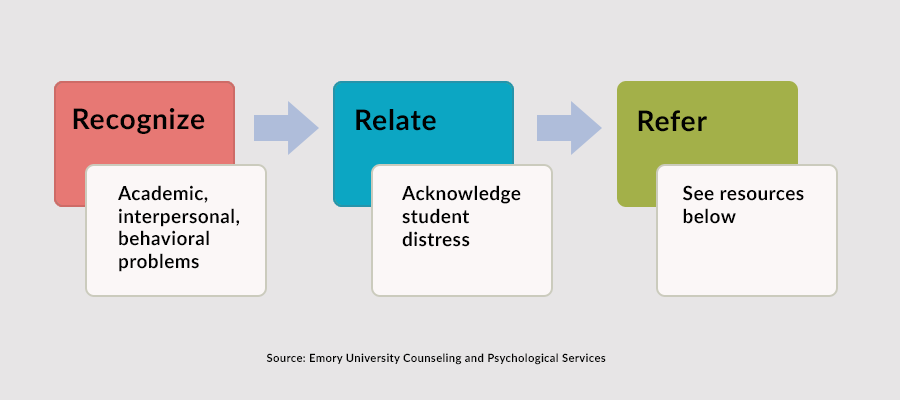
Teaching assistants (TAs) are valued members of the instructional team who provide support to instructors and learners. This list gives some general guidance on things for TAs to know about their role. Overall, talk with the course instructor prior to the start of the semester to discuss roles, responsibilities, expectations, and logistics such as printing services, space for office hours, etc. Make sure you understand your assigned tasks and keep the lines of communication open throughout the semester.
Your role as a TA is multifaceted. You will gain experience with various teaching approaches, learning activities, assessments, and grading systems by assisting the course instructor in planning and delivering the course. As a TA, you are also a relatable facilitator of learner engagement throughout the semester. Engagement is a key component of a meaningful learning experience. These Learner Engagement strategies can be a helpful start. Additionally, the course instructor is likely to rely on you to help support learners academically as well as to recognize and connect learners to resources when they appear to experience stressful circumstances. To be most effective in this role, consider the following resources:
TA Support Resources
- Familiarize yourself with the RSPH Student Support Toolkit
- Complete the RSPH Coordinated Care Response Training taught by the Office of Admission and Student Services at the start of every semester. This interactive training opportunity offers guidance on how to support and refer learners in your class who are having difficulties to helpful resources. If you recognize that a learner is in distress or is falling behind, we recommend utilizing the Recognize, Relate, Refer model.

As a TA, you may recognize that some learners experience academic, interpersonal, and/or behavioral distress while in your class. As a peer, you have the distinct advantage to be able to relate to them in ways that an instructor cannot. When you interact with a learner directly, you can openly acknowledge that you might have noticed their distress and that you are sincerely concerned about them and would like to help and refer them to resources. If a learner is receptive, have a conversation with them and remember these important things:
- As a TA and employee of the university, you are considered a mandatory reporter as it relates to sexual or gender-based discrimination or harassment according to Title IX. When encountering these challenges, please contact Joanne Williams, Deputy Title IX Coordinator for RSPH at jampost@emory.edu immediately.
- If a learner prefers to speak with someone outside of RSPH, refer them to an Advocate at the office of Respect hotline at 470-270-5360, available 24/7.
- Notify your course instructor, so that they may provide additional support and academic flexibility or accommodations if needed.
Emergency Situations
Emergencies happen. If they occur with a learner in your course, do not respond on your own. Enlist university support by following these steps:
- Step 1: Call Student Intervention Services at 404-430-1120 (24/7 hotline).
- Step 2: Call or text Joanne Williams at 404-683-5404.
- Have the following information available:
- Learner name
- Location of the learner
- Description of circumstance
- Type of assistance needed
Non-emergency Situations
If a learner is not receptive to a conversation, or if you need additional support:
- Notify your instructor and the learner's ADAP.
- Remember that it is not your responsibility to handle a learner situation on your own.
Confidentiality - Report up, not out
- When a learner approaches you regarding a personal or academic issue, please do not share this information with other students.
- As a TA, you must practice open communication with your instructor, ADAP, and/or Joanne Williams to assure that learners receive the academic and health and well-being support that they need. This means you must share their names and any relevant information in order for the university to respond in a timely manner.
Conflict Management
An ombudsperson is an official who a) works with individuals and/or groups within an organization to explore and assist them in determining options for how to help resolve conflicts, problematic issues or concerns, and b) works to bring systemic concerns to the attention of the organization for resolution (International Ombuds Association). The Emory Ombuds Office is here for you as a confidential safe space where you can discuss issues and where those communications are kept confidential to the fullest extent possible. A resource for faculty, staff, and students, Emory community members at every level are invited to bring concerns about misunderstandings, incivility, or possible wrongdoing. The role of the Ombuds Office is to promote mutual respect, civility, and ethical conduct, and to alert university leadership to concerns that might justify policy changes. If you have any concerns that you feel cannot be addressed with the course instructor or anyone else at RSPH, the Emory Ombuds Office is a resource available to hear your concerns.
Instructional Resources
Review the technology tools you will be using for your course and consider training opportunities through Emory Teaching and Learning Technologies. Some of the most common instructional resources can be accessed below:
- Canvas Training at Emory
- Canvas Basics Guide
- Canvas Roles and Permissions
- Learning Canvas on Demand through Emory
- Studio in Canvas
- Zoom
- Zoom Documentation
- Zoom Best Practices
- Panopto
- Poll Everywhere
- Teaching Resources
- Assisting with a Zoom meeting
- Gradebook in Canvas
- Posting announcements
- Grading support
- Discussion support
Additional Resources for Successful Classroom Management

